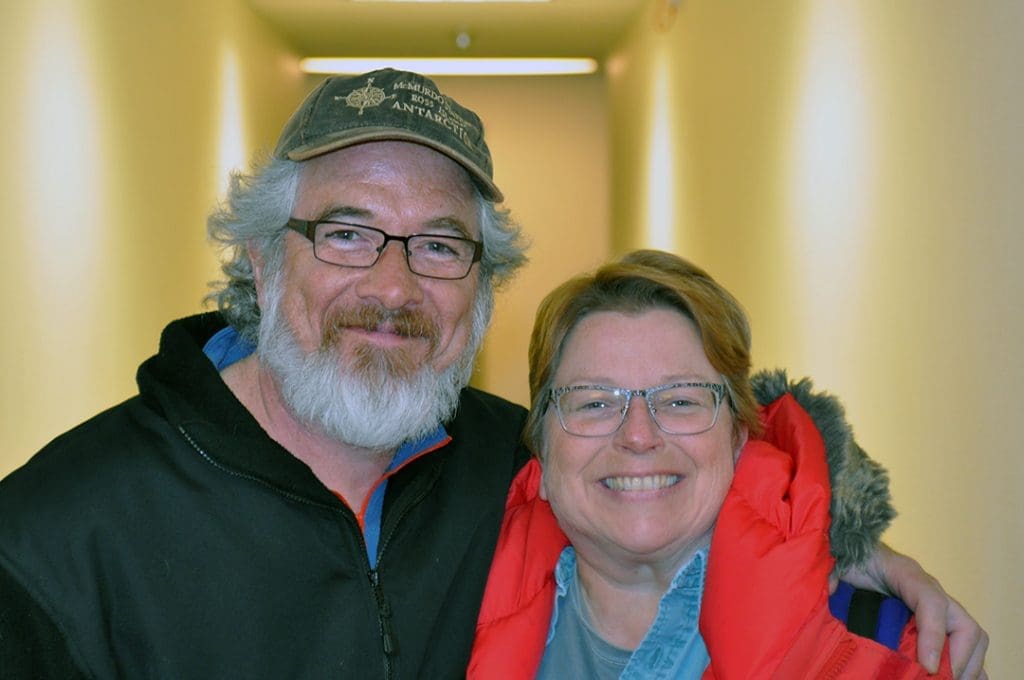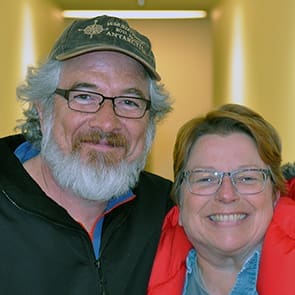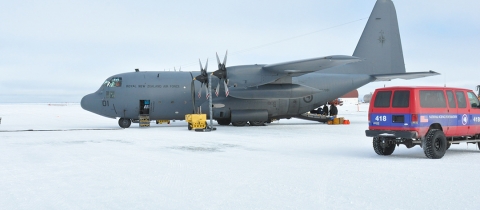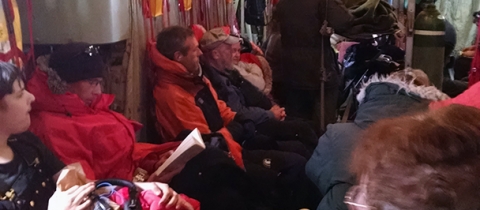Turning Points: Dante on the Ice
Nov 25
There is no shortage of video games and conspiracy novels these days that carve out just enough of Dante’s Divine Comedy for the purpose of legitimizing the use of his name in the marketing plan. Among those things that many get wrong about Dante’s poem is the image of Hell as a place of fiery punishment. While Dante cranks up the heat is some parts of Hell, the very bottom, the center of the physical Earth where Satan resides, is frozen solid. Dante grew up in Tuscany and I believe he shares a pure hatred of the cold with many of my Tuscan friends. Just as soon as the temperature dips a little, the parkas, hats and gloves come out of the closet. It doesn’t surprise me in the least that a Tuscan boy would associate the bottom of Hell with a barren icescape. My Tuscan friends often make fun of me for walking around in cold temperatures with just a sweater. My trip to Antarctica has given me a new tolerance for the cold that, I am sure will solicit more ribbing during my next trip to Italy.
After a long, descending journey, Dante and his guide Virgil arrive at the frozen center of the Earth. This marks the turning point of his journey. Instead of walking down into the Earth, he begins to climb up toward the surface. We must remember that Dante’s poetic travel log through Hell, Purgatory, and Heaven is not an explanation of Church doctrine but rather an invitation for the reader to take a journey of transformation. Through conversations along the path, Dante learns who he should emulate and who he shouldn’t. He realizes that he is using his gifts as a poet for the wrong reasons.
I just got off a 7-hour flight in a New Zealand Royal Air Force LC-130 cargo plane. After a couple hours of Antarctic weather delays, 52 souls in cargo strap jumpseats, one fellow who needed medical evacuation and a large pallet of cargo left the sea ice runway called “Pegasus.” The runway is named after an early aircraft that attempted to land there and crashed. The wreckage of the Pegasus is still half frozen in the sea ice.

My 40-day pilgrimage to the ice has ended. I am headed home. I have been thinking of Dante not because my trip has been hellish. Quite to the contrary. I have been thinking about him because this is a turning point. I traveled to icy bottom of the planet and now I am climbing towards home. Dante had Virgil as his guide. I had Elaine Hood. She is a master organizer, a wise counselor, a gutsy scholar, and now a friend forever. Elaine was a Fulbright scholar in Russia at a time when that was hard to do. She forged her teaching and research skills in El Salvador when the bullets were flying. Here on the ice, Elaine did more than ensure my safety and the success of my musical research at McMurdo. Like Virgil for Dante, Elaine made sure that my time on the ice was transformative through her no-nonsense wisdom and her gentle friendship. I can think of no better guide through the ice. I am forever in her debt.
Like Dante, I am returning home after a long journey that rocked my world. What does this turning point mean? What do I turn towards and what do I turn away from?
I am very grateful for my British, seismologist friend Martin who returned from Yesterday Camp last week. While the rest of the team will come home soon, Martin has been a welcome connection to those beautiful people that I have been missing during my last days at McMurdo. I asked Martin how Antarctic work has transformed him. He said that McMurdo’s commitment to green living is an inspiration for him as he returns home. He will be more attentive to all the ways he can reduce his environmental footprint. He also longed for more places at home in which friends and strangers sat and talked to each other. The McMurdo galley has little-to-no wifi. That means that no one has cell phones at any of the four meals a day they serve. Everyone fortifies their bodies with good food while they fortify their minds and hearts with good conversation. While the digital world has connected us to people around the globe it has isolated us from those sitting two feet away. I must admit that while I sit here in the Sidney airport writing this blog, I feel the urge to pull out my phone. Can I be more intentional about my environmental footprint and my cell phone addiction? I know of no better time in my life to make that change.
Antarctica made me more aware of my health. I went through days of training that taught me the step-by-step, hour-by-hour protocols of staying alive and healthy in that dangerously cold place. My friends and teammates checked in with me to make sure I was drinking enough water and I checked in on them. Any attempt at overextending myself to get a little more work done was met with the tough love that only comes from those who have no fear of saying to me, “that’s really stupid.” I was being stupid. They were right. I survived and thrived on the ice because of their care. I have a new awareness of the relationship between my health and my work decisions.
Dante was right in placing the turning point of his journey in a frozen icescape. Turning points are born from moments of clarity when we strip away the stuff that doesn’t matter. Writing this blog almost every day has forced me to sort through a myriad of experiences to share the biggest ideas of my trip. I have written a wide range of music, but what is most important now? Dante refocused his artistic skills to the big questions of his time after his journey to the ice. I look forward to refocusing my music toward the most urgent stories of our time, including the stories of these heroic scientists and support staff that sacrifice so much on the icy continent.
Antarctica’s beauty and power radiate from its simplicity. The ice rewards single minded attention to your immediate realities over the allure of multi-tasking. The cold strips away superfluous stuff and reveals the fundamental needs of human existence: shelter, food, friendship, and kindness. The ice demands your full attention and will not be denied. The ice has much to say about its own history, but if you are willing to listen deeply to its musical voice, it has much to say to us.



